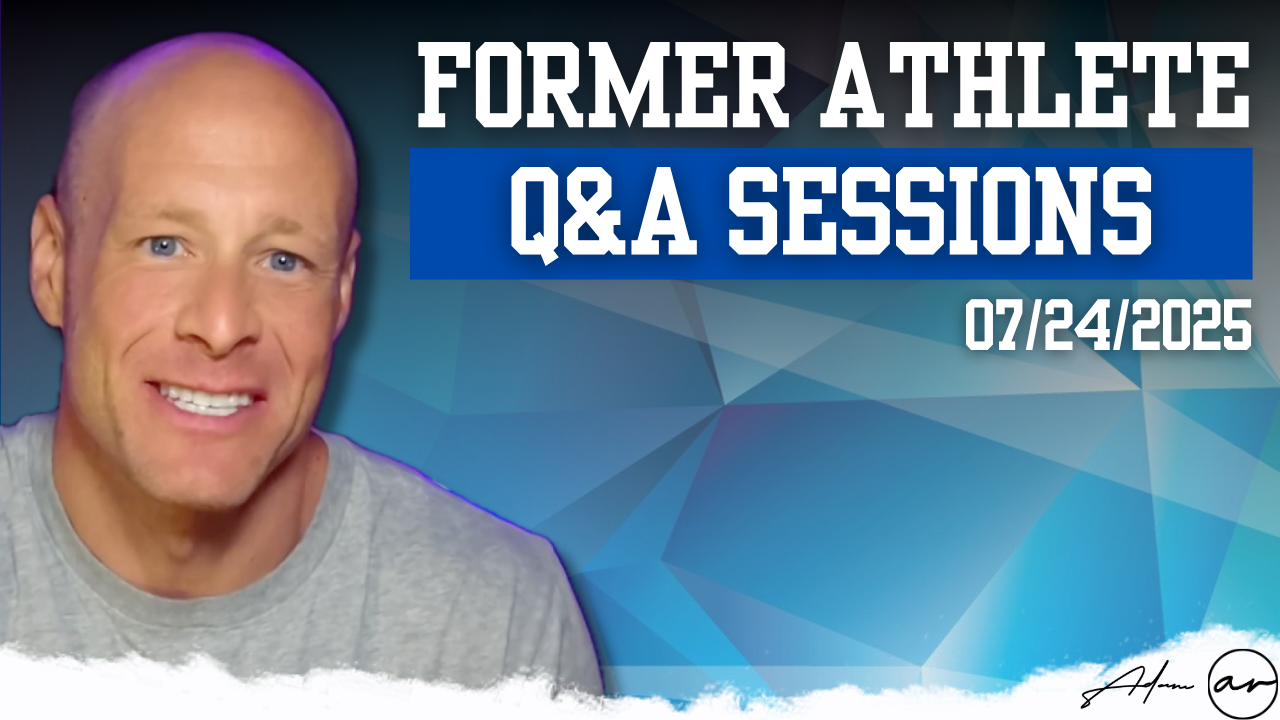Q&A: Training Aids, Sleep Supplements, and Long-Term Health Choices for Former Athletes
New FAS Q&A video is up: I dive into training aids, sleep supplements, training intensifiers, coffee vs. tea, and how to meal plan when you’re no longer training full-time. These answers are deep, practical, and tailored for former athletes.

Another week, another powerful Q&A from the Former Athlete Society. This session tackles five of the most practical and commonly asked questions I hear in the gym, the locker room, and our online community.
This video gives you real-world tactics, tools, and strategies to apply right now.
What’s Inside This Q&A?
This isn’t theory. It’s jam packed full of actionable coaching designed to help you train smarter, recover faster, and stay consistent—even when life gets busy.
🏋️♂️ 1. What’s your take on training aids like belts, straps, sleeves, and wraps?
In this section, I cover the real purpose of external training tools—why they're often misunderstood, when they can become crutches, and how former athletes can use them sparingly to enhance performance or mitigate joint pain without limiting development. I share how we evaluate this at Colorado with our Women's Basketball team and what signs indicate a tool is helping vs. holding you back.
😴 2. Are sleep supplements worth it—or are we overdoing it?
We break down the over-the-counter options former athletes are turning to—melatonin, magnesium, glycine, GABA—and talk about how they interact with stress, blue light, and nervous system regulation. You'll also get a breakdown of the nighttime routine we use with elite athletes to promote high-quality sleep without dependence on pills or powders.
🔁 3. What are your thoughts on training intensifiers like dropsets, rest-pause, and tempo work?
I walk through the science of intensifiers, how they function under fatigue, and how we use them strategically in the offseason to break plateaus. I also caution against overuse—especially when recovery is compromised due to lifestyle stress, aging, or inconsistent training.
☕ 4. Coffee vs. Tea—Which is better for long-term health, performance, and recovery?
This section compares caffeine dose, delivery speed, polyphenol profiles, and how each drink impacts sleep latency and HRV. You’ll leave with a nuanced view of how to use each based on your personal stress levels, training cycle, and recovery demands.
🥗 5. How should I meal plan if I’m not training as intensely but still want to stay lean?
I finish by unpacking how to meal plan when you’re not burning 2,000 extra calories through sport. I cover simple portioning models, how to structure your plate with protein anchors, the role of carb cycling, and how to maintain energy and aesthetics without obsessing over macros.

All of These Questions were Answered!
During our LIVE YouTube Q&A Session but you MUST be a member to access the exclusive behind the scenes content and information!
Join the Society to Watch